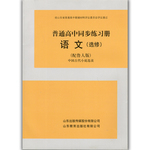题目内容
F
It was a quarter past nine as Marie hurried into the office building where she would be working. Her bus had inched along through heavy morning traffic, making her a few minutes late for her very first job. She decided she would start out half an hour earlier the next day. Once inside the building, she had to stand at the lifts and wait several minutes before one arrived. When she finally reached the office marked "King Enterprises," she knocked at the door nervously and waited. There was no answer. She tapped on the door again, but still there was no reply. From inside the next office, she could hear the sound of voices, so she opened the door and went in. Although she was sure it was the same office she had been in two weeks before when she had had the interview with Mr. King, it looked quite different now. In fact, it hardly looked like an office at all. The employees were just standing around chatting and smoking. At the far end of the room, somebody must have just told a good joke, she thought, because there was a loud burst of laughter as she came in. For a moment she had thought they were laughing at her. Then one of the men looked at his watch, clapped his hands and said something to the others. Quickly they all went to their desks and, in a matter of seconds, everyone was hard at work. No one paid any mind to Marie. Finally she went up to the man who was sitting at the desk nearest to the door and explained that this was her first day in the office. Hardly looking up from his work, he told her to have a seat and wait for Mr. King, who would arrive at any moment. Then Marie realized that the day's work in the office began just before Mr. King arrived. Later she found out that he lived in Connecticut and came into Manhattan on the same train every morning, arriving in the office at 9:35, so that his staff knew exactly when to start working.
1. Marie felt nervous when she knocked at the door because _______.
A. she had never met the boss once before
B. she was a little bit late for work
C. she was afraid that she had gone to the wrong place
D. there was no answer from inside the office
2. Marie could hardly recognize the office she went into as _______.
A. she had been there only once
B. Mr. King was not in the office
C. nobody was doing any work
D. the office had a new appearance
3. The people in the office suddenly started working because _______.
A. they saw a stranger in the office
B. they had finished their morning break
C. no one wanted to talk to Marie
D. the boss was about to arrive
4. We can infer from the passage that the employees of the enterprise
_______.
A. would start their work day by listening to a joke
B. were considerate to newcomers
C. were always punctual for work
D. lacked devotion to the company
5 . What is probably the best title for the passage?
A. Punctual Like a Clock
B. A Cold Welcome
C. An Unpunctual Manager
D. Better Late Than Never
【小题1】B
【小题2】C
【小题3】D
【小题4】D
【小题5】B

 海淀黄冈名师导航系列答案
海淀黄冈名师导航系列答案 普通高中同步练习册系列答案
普通高中同步练习册系列答案